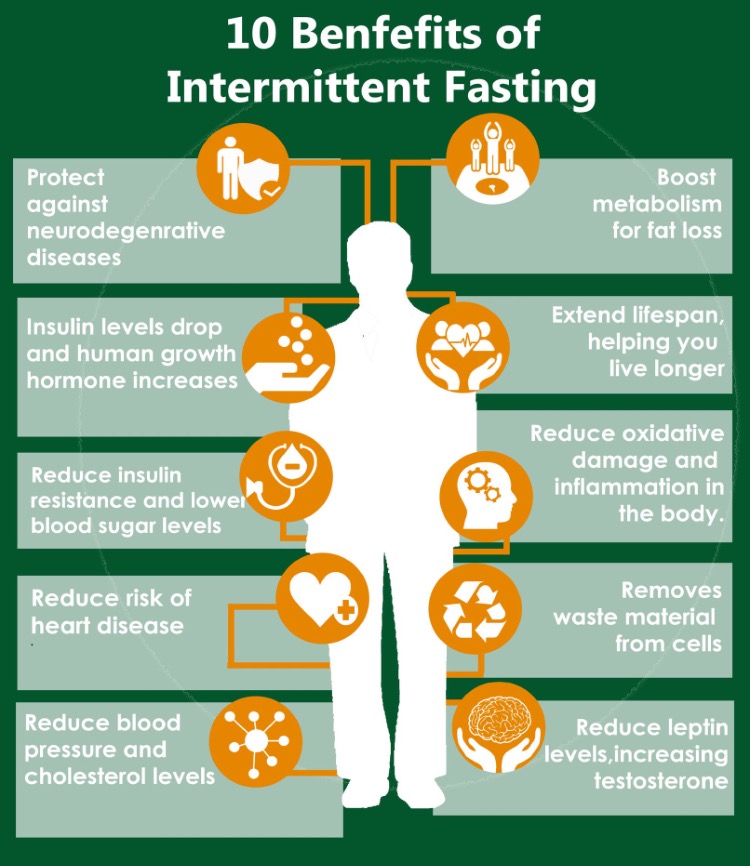Through conversations with my husband and brother, I discovered intermittent fasting.
Intermittent fasting, or IF, means consuming your daily calories during a specific window of time, and avoiding taking in calories outside of that timeframe. During the fasting window, your body enters a state called ketosis, and the ketones trigger the release of BDNF, which strengthens the neurons responsible for learning and memory. In fact, the impact is so great that trials with early stage dementia patients showed memory improvement in as little as 6 weeks! Thankfully, dementia is not an issue for me, but trying to run a business while staying plugged in and energetic for my husband, 2 children and everything else can sometimes be a heavy lift—the idea of a little more pep in my step is very appealing, and it just may be what my mental state is currently craving.
My husband and brother both tried IF and claim to have more energy, better moods, and are seeing better muscle gain from their workouts.
Proponents of IF claim there are a ton of health benefits including living longer, improved memory and learning, mental clarity and sharpness, decreased inflammation (which we know to be the root of many if not most diseases), anti-aging, increased HGH (human growth hormone—hormone that stimulates growth, cell reproduction, and cell regeneration), better balanced metabolic hormones (like insulin, leptin and ghrelin, which regulate hunger and metabolism), detoxification, increased energy and better immune function. With so many positive side-effects as a result of IF, I’m excited to give it a try!
How do you do it? There are different Intermittent fasting methods. The overall goal is to fast for 16 hours each day, consuming your normal daily calories (whatever that means for you!) during the remaining 8 hours.
During the fast, you can drink water, black coffee, tea, sparkling water or apple cider vinegar, but no cream, sweeteners or anything containing glucose (aka sugar), because it can throw off ketosis.
Who should NOT try Intermittent Fasting? If you’re malnourished, taking medication, have diabetes, blood pressure concerns or have been dealing with chronic stress, IF may not be for you, so please consult your doctor before trying IF. If you’re pregnant or nursing, this is definitely not the time for you to try IF.
I personally can’t wait to dive in and try IF. I plan on keeping a daily journal to catalog my experience and will be sharing it here on the blog in a post next month, so stay tuned!
Imagery via Insider + The Fitness Junction















TAGS: fasting, health, intermittent, wellness